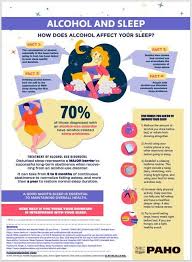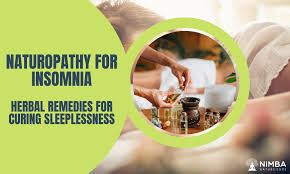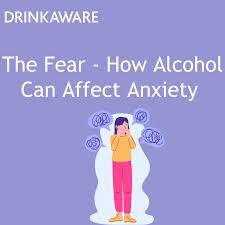Alcohol Insomnia Cure: Separating Fact from Fiction
Many people turn to alcohol as a way to relax and unwind after a long day. While it may help you fall asleep faster, the truth is that alcohol can actually worsen your quality of sleep and contribute to insomnia.
Alcohol disrupts the natural sleep cycle, leading to more fragmented and less restorative sleep. This can result in waking up feeling groggy, fatigued, and irritable the next day. Over time, regular alcohol consumption before bedtime can lead to chronic insomnia and other sleep disorders.
It’s important to understand that alcohol is not a sustainable solution for insomnia. While it may initially make you feel drowsy and help you drift off to sleep quicker, the overall impact on your sleep quality is detrimental.
If you’re struggling with insomnia or poor sleep quality, it’s essential to seek healthier alternatives to improve your sleep hygiene. Establishing a bedtime routine, creating a relaxing sleep environment, practicing relaxation techniques like meditation or deep breathing, and avoiding stimulants like caffeine and alcohol before bed are all effective strategies for promoting better sleep.
Remember, there is no quick fix for insomnia. By addressing the root causes of your sleep disturbances and making positive changes to your lifestyle habits, you can achieve restful and rejuvenating sleep without relying on alcohol as a crutch.
Understanding Alcohol and Insomnia: Answers to Common Questions
- Can alcohol help me sleep better if I have insomnia?
- Why does alcohol make me feel drowsy but then disrupt my sleep?
- Is it safe to use alcohol as a remedy for insomnia?
- What are the long-term effects of using alcohol to treat insomnia?
- Are there alternative solutions to alcohol for improving sleep quality?
Can alcohol help me sleep better if I have insomnia?
Many people wonder if alcohol can help them sleep better if they have insomnia. While alcohol may initially make you feel drowsy and aid in falling asleep faster, it actually disrupts the quality of your sleep. Alcohol interferes with the natural sleep cycle, leading to fragmented and less restorative sleep. Over time, relying on alcohol as a sleep aid can worsen insomnia and contribute to other sleep disorders. It’s important to seek healthier alternatives for managing insomnia and improving sleep quality, rather than turning to alcohol as a temporary solution.
Why does alcohol make me feel drowsy but then disrupt my sleep?
Alcohol’s initial sedative effects can make you feel drowsy and help you fall asleep faster. However, as your body metabolizes alcohol throughout the night, it disrupts the natural sleep cycle by interfering with the deeper stages of restorative sleep. This disruption leads to fragmented sleep patterns, causing you to wake up more frequently and experience lighter, less restful sleep overall. While alcohol may initially induce drowsiness, its impact on the quality of your sleep can result in feeling groggy, fatigued, and irritable upon waking.
Is it safe to use alcohol as a remedy for insomnia?
Using alcohol as a remedy for insomnia is not considered safe or effective in the long term. While alcohol may initially make you feel drowsy and help you fall asleep faster, it can disrupt your natural sleep cycle and lead to poor sleep quality over time. Regular alcohol consumption before bedtime can contribute to chronic insomnia and other sleep disorders, as well as have negative impacts on your overall health and well-being. It’s important to seek healthier alternatives for improving your sleep hygiene and addressing the root causes of your insomnia rather than relying on alcohol as a quick fix.
What are the long-term effects of using alcohol to treat insomnia?
Using alcohol as a remedy for insomnia may provide temporary relief by inducing drowsiness and facilitating quicker sleep onset. However, relying on alcohol as a long-term solution for treating insomnia can have detrimental effects on sleep quality and overall health. Chronic alcohol consumption before bedtime disrupts the natural sleep cycle, leading to fragmented and less restorative sleep. Over time, this pattern can exacerbate insomnia symptoms, contribute to sleep disorders, and negatively impact cognitive function, mood stability, and physical well-being. It is crucial to address the underlying causes of insomnia and seek healthier alternatives for improving sleep hygiene to avoid the long-term consequences of using alcohol as a coping mechanism for sleep disturbances.
Are there alternative solutions to alcohol for improving sleep quality?
When seeking alternative solutions to alcohol for improving sleep quality, there are several effective strategies to consider. Establishing a consistent bedtime routine, creating a calming sleep environment, practicing relaxation techniques such as meditation or deep breathing exercises, avoiding stimulating activities before bed, and maintaining a healthy lifestyle with regular exercise and balanced nutrition can all contribute to better sleep hygiene. Additionally, exploring natural remedies like herbal teas, aromatherapy, or melatonin supplements under the guidance of a healthcare professional may offer non-alcoholic options to promote restful and rejuvenating sleep without the negative effects of alcohol on sleep quality.



